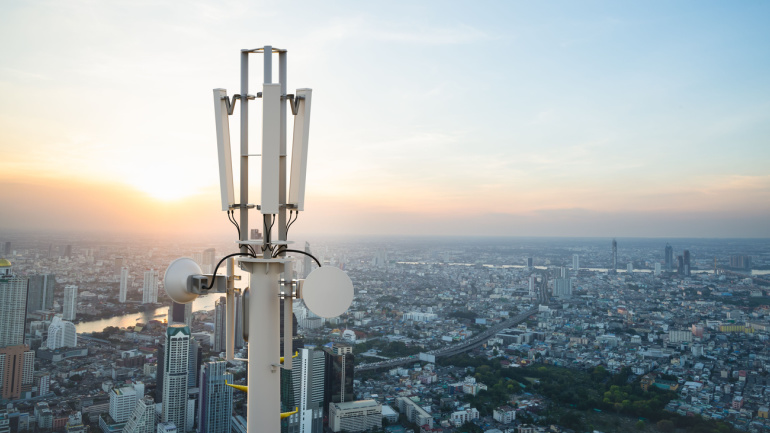In an exciting leap forward for 5G technology in Europe, Ericsson and O2 Telefónica in Germany have joined forces to accomplish a remarkable feat in the development of 5G Cloud RAN technology. Their groundbreaking Proof of Concept (PoC) deployment at O2 Telefónica’s Wayra innovation hub in Munich showcased the immense capabilities of Ericsson’s first 5G Cloud RAN installation on the continent. The PoC utilized cutting-edge mmWave frequency and a centralized control unit (CU), achieving an impressive end-to-end speed of over 4 gigabits per second.
In a recently revealed Q2 report, Nokia showed flat sales at €5.7 billion year over year, suggesting reduced capital expenditure by operators. Interestingly, while a 5% sales growth in Nokia’s Mobile Networks unit occurred, a troubling 6% decline at the Network Infrastructure division offset this boost. With stark contrasts across regions, North American sales notably dropped by 42% as 5G deployments slowed, while energetic 5G deployments in India couldn’t adequately balance the losses. Mirroring these figures, Ericsson too reported a 9% year over year decrease in Q2 revenue. A gloomy yet realistic outlook from Nokia’s CEO Pekka Lundmark, coupled with analyst firm Dell’Oro’s forecast on the shrinking RAN predictions, suggests telecommunications could be in for a turbulent few years.
As companies globally adopt innovative strategies, leveraging considerable commercial benefits from their 5G investments is at the forefront. Pioneered by Chinese service providers, the paradigm shift towards traffic value-based operations has significantly enhanced revenue. Unique 5G experiences such as ultra-high speed and low latency have unlocked new function scenarios, exemplified by the booming live broadcast industry in China. Meanwhile, European and Middle East counterparts effectively implement rate-based charging models, showcasing the versatility of the 5G platform. This status quo suggests that as we advance, the necessity to adapt traffic value-oriented operations for effective monetization becomes paramount, opening new revenue vistas and novel business models.
Spain’s government is pumping €448 million into the upgrade of over 8,000 isolated 5G base stations, an initiative set to stimulate economic and civil activity while bridging the digital divide. Interestingly, the bulk of the funds are being allocated to lesser-known entities, including wholesale and retail fibre providers Lyntia and Avatel. The rollout is part of Spain’s broader mission of delivering ultrafast broadband coverage by 2025, concurrently ramping up public access to high-speed connections. Furthermore, a €10 million fund invites proposals for innovative 5G projects in sectors such as agriculture and connected vehicles.
Outpacing the global auto industry, Zeekr, a subsidiary of Geely, has launched a groundbreaking 5G-enabled factory in Ningbo, China. Developed alongside China Unicom Zhejiang, this advanced facility leverages 5G for superior data processing, revolutionizing car manufacturing customizability. However, obstacles such as infrastructure robustness and data security come with the territory of employing 5G in production processes. Nonetheless, the potential of this intelligent blend of automotive and digital tech seems irresistible, prompting worldwide industry attention towards Zeekr’s trendsetting venture.
Despite robust projections for 5G growth, the radio access network (RAN) equipment market experiences a downturn, according to Dell’Oro Group. A typical industry cycle shows that after the booming initial rollout of new mobile tech, stagnation follows as operators complete their spending cycles. However, 5G RAN could still expand by 20%-30% by 2027, failing to offset decreasing LTE investments. As telecom industry anticipates the inception of 6G, dwindling subscriber growth and restrained capital expenditures, due to economic considerations, are putting pressure on the market.
In a quantum leap for telecommunications, the emergence of 5G-Advanced next year is set to revolutionize user experiences and catalyze operator revenue growth. Unveiling at the 2023 MWC Shanghai, Huawei is geared to lead this evolution with its innovative capabilities and AI-empowered design. Pioneering 5.5G network solutions, the telecom giant intends to enhance services for a sprawling customer base spread over 260 5G networks worldwide. Close on its heels, is the seamless integration of cloud with the core network, creating intelligent entities of simple Internet-based objects, promising profound implications in IoT.
The GSMA and the European Space Agency are planning a collaboration to further integrate satellite and cellular technologies. This new alliance promises to bring non-terrestrial networking (NTN) into the market mainstream, a significant step, previously signaled by NTN’s inclusion in the 3GPP’s 5G standards. With eyes set for integration in future 6G networks, this collaborative endeavor aims to advance unique solutions for businesses and consumers. It’s an astounding opportunity that potentially could yield a high-growth market worth $18 billion between 2024 and 2031.
Unveiling a battery and solar-powered 5G site in Texas, Ericsson demonstrates an innovative and eco-friendly approach to creating energy-smart network solutions. This next-generation site not only offers enhanced energy management, potentially trimming operational expenses and reducing energy consumption, but also hints at lucrative future revenue streams from selling excess power. As Ericsson continues to explore greener alternatives, it’s intriguing to see how telecom companies worldwide will adopt this sustainable model.
The future of telecommunications is rapidly changing thanks to the surge of Internet of Things (IoT) connections, with an anticipated 142 million 5G IoT roaming connections by 2027. This evolution promises increased speeds, reduced latency, and advanced services, setting the stage for a demand surge in standalone-specific 5G roaming agreements. However, despite these advancements, most connected devices will continue utilizing LTE-M and NB-IoT networks due to their compatibility with mixed traffic. A major hub for 5G IoT roaming is Western Europe, anticipated to host 21% of all such connections by 2027.













